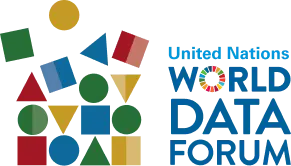
THE 50x2030 INITIATIVE TO CLOSE THE AGRICULTURAL DATA GAP
• Implementing partners: World Bank, UN Food and Agriculture Organization, International Fund for Agricultural Development • Donor-partners: Bill and Melinda Gates Foundation, USAID, Italian Agency for Development Cooperation, Germany Federal Ministry for Economic Cooperation and Development, France Ministere De L’Europe Et Des Affaires Etrangeres, European Cooperation, Australian Government Development and Foreign Affairs and Trade
The 50x2030 Initiative is a multi-agency partnership that seeks to bridge the global agricultural data gap by transforming data systems in 50 low and lower-middle income countries by 2030. Through increased data availability and usage, 50x2030 will contribute to informing national policy priorities towards improved rural livelihoods, agricultural sustainability, and food security in direct partnership with countries.
Led by a Program Management Team within the World Bank’s Development Data Group, 50x2030 unites the technical and operational expertise of key multilateral implementers with the strategic influence, vision and resources of development agencies and the commitment of partner countries.
Each year, low- and lower-middle-income countries invest nearly 500 billion dollars in agriculture, often without good evidence to inform development programs and investments. Evidence is crucial to address global concerns such as losses in productivity, shortfalls in agricultural income, impact of climate on agriculture that contributes to hunger and poverty. It is within this landscape that the 50x2030 Initiative seeks to establish sustainable, resilient agricultural data systems that generates foundational data.
It is of this need that the 50x2030 Initiative to Close the Agriculture Data Gap was born.
The 50x2030 Initiative is looking to usher in agriculture’s newest revolution: data-smart agriculture. It will also make possible a world where true change agents — governments, businesses, smallholders, researchers and civil society — will transform agriculture through evidence-based policies and investments.
Key activities of the 50x2030 Initiative include:
1. Building and improving agriculture data systems in countries and strengthening governance of agricultural data
2. Producing agricultural data through annual integrated agriculture surveys
3. Promoting the use of survey data in agriculture policymaking, decisions, and investments
4. Conducting research to improve agriculture survey methodologies and tools
The 50x2030 Initiative works with countries to define needs and build robust, sustainable agricultural survey programs that leverage and integrate into national data systems. These survey programs also support:
· Sustainable Development Goal 2 (SDG2) to achieve zero hunger
· Sustainable Development Goal 5 (SDG5) to achieve gender equality
· Comprehensive Africa Agriculture Development Programme (CAADP) data requirements
In total, the Initiative aims to contribute to 8 SDG indicators and 9 CAADP indicators. Further, 50x2030 supports countries in measuring women’s empowerment and nutrition through the integration of a dedicated survey instrument.
The 50x2030 Initiative measures its success through several key performance metrics:
· Number of countries engaged
· Agriculture surveys completed and microdata sets produced and disseminated
· SDG and CAADP indicators monitored
· Knowledge products published
· Beneficiaries of capacity building interventions delivered
· Research and studies conducted informed by 50x2030 data
· Outreach and advocacy activities through global, regional, and national fora
More broadly, the 50x2030 Initiative works with countries to promote a culture of data use in policy development. As more data sets are produced and trainings are conducted benefitting user stakeholders, examples of 50x2030 outputs informing national strategies will further indicate the success of the Initiative in addressing country goals related to food security, sustainability, women’s empowerment and improved rural livelihoods.
